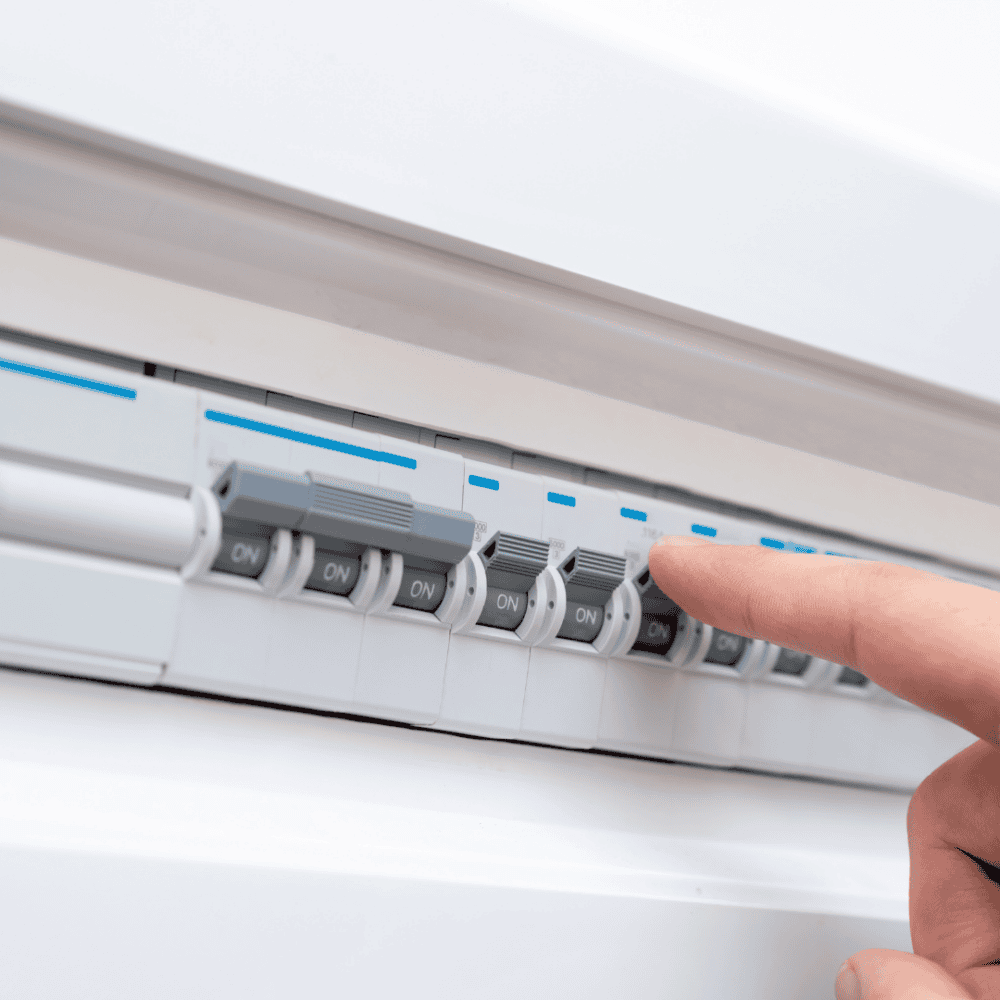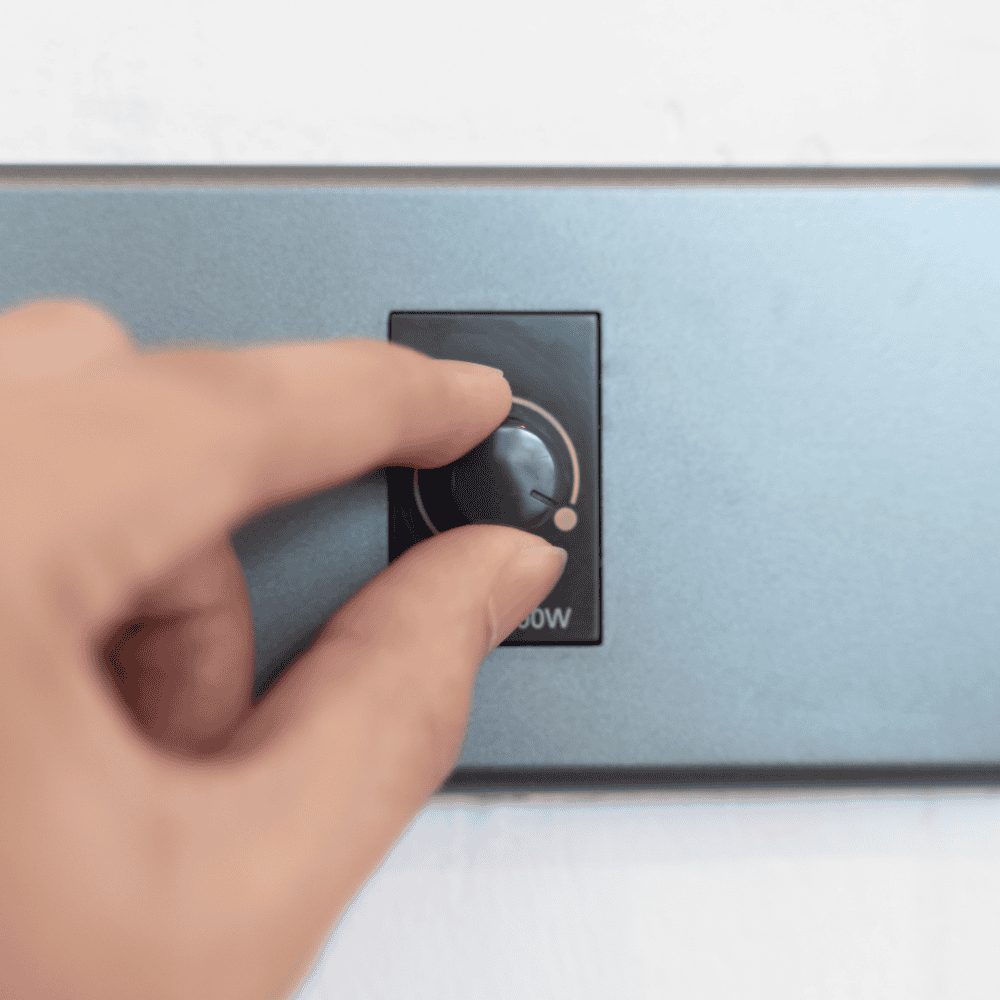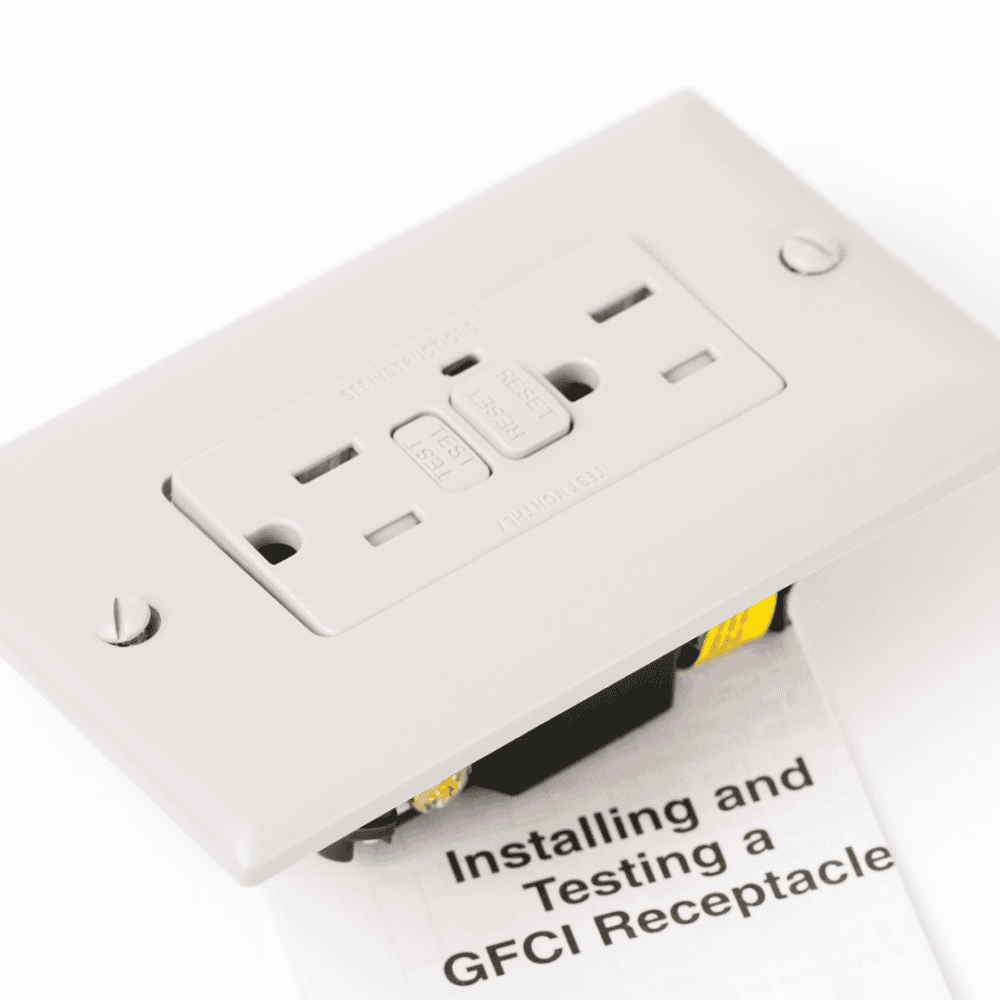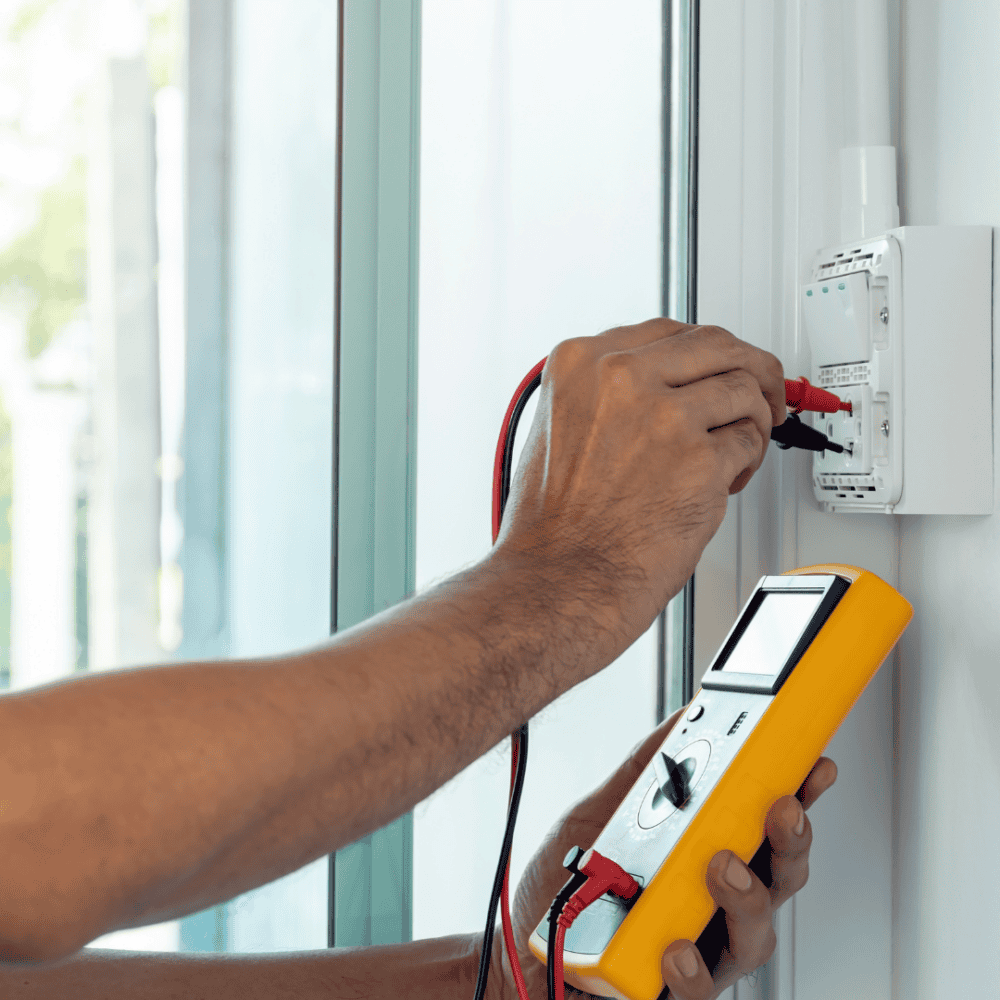Electrical Home Renovation checks
Table of Contents
When it comes to electrical home renovation, it’s crucial to assess the electrical needs of your space in the old home to ensure the safety, efficiency, and functionality of your home. This home inspection often has overlooked aspects that can have a significant impact on the functionality and safety of your home.
Taking the time to assess these needs before embarking on a major renovation project not only ensures peace of mind but also saves you from potential headaches in the future. Consulting with professionals and an electrical inspector in these fields will provide expertise and clarity, helping you make informed decisions about what upgrades or repairs are needed.
Assess Your Needs

Identify the specific issues with your existing home’s electrical system.
Determine if you need to update the entire system or just specific electrical components.
Consider any future needs or technology upgrades.
Hire Professionals
Hiring professionals for electrical home renovation checks is crucial to ensure the safety and functionality of your living space. Many homeowners underestimate the complexity of these tasks, attempting to tackle them on their own only to find themselves in a deeper mess. By hiring experts in the field, you not only save yourself from unnecessary stress but also protect yourself from potential hazards.
A licensed Electrician will possess extensive knowledge and experience in their respective fields, allowing them to identify problems that may be hidden to an untrained eye. Hiring a professional general contractor ensures that the job is done correctly the first time around. They are well-versed in local electrical codes and building regulations and will guarantee that all work is completed up to par with industry standards. This not only eliminates future complications but also increases the value of your property.
When it comes to electrical home renovations, getting multiple quotes from a reputable electrical contractor is crucial. Not only does it give you an idea of the average cost for your project, but it also allows you to compare the qualifications of different contractors. While price may be a significant factor in your decision-making process, don’t forget to consider other important aspects. Each local electrician should provide a detailed estimate outlining all the work they plan on doing and the materials they will use. Take the time to review these estimates carefully and look for any discrepancies or missing information. The qualifications of each electrical service is also essential; inquire about their experience, certifications, and licenses. It’s important to find a balance between cost and expertise – while you want an affordable option, you also want someone with the necessary electrical installation skills to tackle your project.
Electrical Updates



Rewiring
When it comes to electrical home renovation checks, rewiring is often a crucial aspect. Rewiring involves replacing the old electrical system in a building with new circuits, ensuring safety and meeting the demands of modern living. Beyond providing a functional upgrade, rewiring can also bring about transformative changes to your space. One key advantage of replacing old wiring is improved energy efficiency. By replacing outdated fixtures and electrical wiring with newer and more efficient models is a best way to significantly reduce energy consumption and lower utility bills in the long run. This enhanced energy efficiency not only benefits your pocket but also contributes to sustainability efforts by reducing your carbon footprint.
Rewiring allows for an opportunity to customize and enhance the functionality of your space during the remodelling project. You could install additional outlets or USB ports strategically throughout your home to accommodate increased demand and our reliance on electrical devices and technology. Moreover, rewiring provides an opportunity and perfect time to incorporate smart home technology seamlessly into your house’s infrastructure, making it easier than ever to control lighting, heating/cooling systems or security features through smartphone apps.
Panel Upgrade
When it comes to electrical home renovations, A electrical panel upgrade is essential and involves replacing an outdated circuit breaker box with a larger capacity model, enabling your electrical system to better handle increased power demands and electrical load. One key advantage of a panel upgrade is enhanced safety. Older houses may have panels that are unable to support today’s energy needs, leading to overloaded circuits and potential fires. By upgrading your panel, you not only ensure that your home meets current safety codes but also minimize the risk of electrical accidents. A new panel provides better protection against power surges and allows for more accurate detection of faults or issues within your house’s electrical system.
Moreover, a panel upgrade grants you greater flexibility in using electricity throughout your home. Modern appliances and technology demand substantial amounts of power, which older panels may struggle to deliver efficiently. Upgrading your panel enables you to distribute electricity evenly across various circuits without overloading any single one. This means fewer blown fuses or tripped breakers when running multiple devices simultaneously – no more worrying about whether turning on the air conditioner will cause lights in other parts of the house to flicker!
Circuit Breakers
Circuit breakers serve as a protective measure against electrical overloads and short circuits by automatically shutting off the flow of electricity when necessary so essential electrical home renovation task. This not only protects your home from potential fire hazards but also safeguards the well-being of your loved ones. Investing in modern circuit breakers provides an extra layer of protection as they come equipped with advanced technologies such as ground fault circuit interrupters (GFCIs) and arc fault circuit interrupters (AFCIs). GFCIs are designed to quickly detect any abnormalities in electrical currents, shutting them down almost instantly to prevent electric shock incidents. On the other hand, AFCIs offer protection against electrical arcs, which are responsible for numerous residential fires each year. Integrating these advanced features into your home’s circuits ensures that your electrical system stays up-to-date with the latest safety standards.
Lighting



Electric Bulbs
As we become more aware of the environmental impact of our everyday choices, many homeowners are seeking ways to make their homes more energy-efficient. Traditional incandescent bulbs not only consume large amounts of electricity, but they also emit a significant amount of heat, which can further increase your energy bill if you rely on air conditioning. By updating your lighting with new light fixtures as part of your electrical home renovation to more energy-efficient options such as LED or CFL bulbs, you can reduce your electrical consumption by up to 80%. Not only will this have a positive impact on the environment, but it will also result in substantial cost savings in the long run.
LED and CFL bulbs offer several advantages over traditional incandescent bulbs. Firstly, they last significantly longer, with an average lifespan that can range from 10 to 20 years compared to just one year for an incandescent bulb. This means less frequent replacements and fewer trips to the store for lightbulbs. Secondly, LED and CFL bulbs produce very little heat compared to their incandescent counterparts. This feature not only decreases your cooling costs during warmer months but also reduces the risk of fire hazards within your home.
When choosing new lighting fixtures for energy efficiency, it’s important to pay attention to lumens rather than watts. Lumens measure brightness while watts indicate power consumption. By selecting fixtures based on lumens rather than watts alone, you can ensure that you choose options that provide adequate illumination while minimizing energy usage. Additionally, consider installing dimmer switches
Dimmer switches, motion sensors, or smart lighting
As you embark on your electrical home renovation checks consider the potential benefits of incorporating dimmer switches, motion sensors, or smart lighting into your space. These innovative solutions can significantly enhance both the functionality and ambiance of any room in your home.
Dimmer switches are a simple yet impactful addition that allows you to adjust the brightness levels of your lights to suit different activities and moods. From creating a cozy atmosphere for movie nights to providing brighter lighting for reading or cooking, dimmers offer ultimate flexibility. They also help conserve energy and extend the lifespan of light bulbs by reducing their power usage.
Motion Sensors
Motion sensors provide an added layer of convenience and energy efficiency to your electrical home renovation by automatically turning lights on and off based on movement detection. No more fumbling for switches in a dark hallway or worrying about leaving lights on when no one is around. This smart feature not only enhances safety but also saves money on utility bills – an excellent eco-friendly choice.
Smart Lighting Sytems
With smart lighting systems gaining popularity, many homeowners are exploring advanced options like programmable schedules, customizable color temperatures, and integration with other smart devices such as voice assistants or smartphones. Bringing automation to your lighting allows for seamless control from anywhere at any time. Whether you want to set up automated morning routines or create welcoming scenes before guests arrive, investing in smart lighting as part of your electrical home renovation is sure to elevate both the style and functionality of your living spaces.
Grounding and GFCIs
GFCIs

(Ground Fault Circuit Interrupters) play a vital role in keeping your home safe during an electrical home renovation and protecting you from electrical hazards. Grounding ensures that any excess electricity is directed safely into the ground, preventing electrocution and reducing the risk of fires.
GFCIs, on the other hand, are specifically designed to protect against electric shocks in areas with water or moisture. They monitor the flow of electricity through a circuit and instantly shut off power if they detect even a small imbalance – as little as 5 milliamps. This fast-acting mechanism can be a lifesaver in bathrooms, kitchens, or outdoor outlets where water is present. It is important to remember that GFCIs have a lifespan of around 10 years and should be regularly tested to ensure their effectiveness.
Permits and Codes

Electrical checks should never be overlooked during home renovations. Faulty wiring or improperly installed electrical systems can lead to electrical shocks, fires, or even fatal accidents. By adhering to local building codes and obtaining necessary permits for any work done in your electrical home renovation project, you guarantee that everything is being carried out by qualified electricians who will ensure safe installations and follow standard practices.
Investing time and effort into understanding permit requirements and adhering to applicable codes is essential for a successful home renovation project that prioritizes both safety and quality workmanship. Don’t hesitate to consult with professionals in electrical fields if you have any doubts; they’ll help guide you through this bureaucratic jungle while ensuring compliance every step of the way.
Budget and Timeline

When it comes to any home renovation project, two crucial aspects that require careful consideration are the budget and timeline. Electrical home renovations are no exception. Before embarking on any electrical upgrades, it is essential to assess your budget and create a realistic financial plan. Allocate funds not only for materials and labor but also for unforeseen expenses that may arise during the process. Keeping a contingency fund will help you avoid unnecessary stress if unexpected issues crop up along the way.
One often overlooked aspect of budgeting for electrical home renovations is the importance of conducting thorough checks beforehand. This can help eliminate surprises during the project that may lead to additional costs or delays in completing the work. Conducting inspections or seeking professional advice before starting any electrical work can identify potential hazards such as outdated wiring systems or faulty circuits that require immediate attention. By investing time and money in these pre-renovation checks, you can better allocate your resources, ensuring an efficient and cost-effective electrical upgrade experience.
Establishing a clear timeline is crucial for successful electrical home renovations. Many factors come into play when estimating how long a project will take, including the scope of work, permits required, availability of materials and scheduling conflicts with contractors. Being realistic about timelines from the start will help manage both your expectations and those of professionals involved in the project. Keep communication open with your contractor throughout the process to ensure everyone is on track with deadlines and milestones. Remember that rushing through an electrical renovation could compromise safety standards, so prioritizing quality work.
Regular Maintenance

Regular maintenance is essential for the longevity and safety of your home. While most homeowners are aware of the importance of regular checks on plumbing, HVAC systems, and structural components, it’s easy to overlook systems during electrical home renovation projects. However, neglecting electrical maintenance can lead to potential hazards such as electric shock or even house fires.
Regular maintenance is essential for the longevity and safety of your home. While most homeowners are aware of the importance of regular checks on plumbing, HVAC systems, and structural components, it’s easy to overlook systems during electrical home renovation projects. However, neglecting electrical maintenance can lead to potential hazards such as electric shock or even house fires. Regularly inspect your wiring for any signs of wear or damage such as frayed insulation or exposed wires. Regularly inspect your wiring for any signs of wear or damage such as frayed insulation or exposed wires.
Finally, when conducting electrical home renovation checks, it’s crucial to prioritize safety. Before starting any work always ensure that the power supply is switched off at the main breaker box. Never attempt to work on live wires or circuits unless you are a licensed professional.



